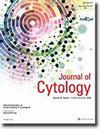Modification of Rapid Papanicolaou Stain with Phloxine: A Study Assessing the Utility in Gynecological Smears
IF 1
4区 医学
Q4 MEDICAL LABORATORY TECHNOLOGY
引用次数: 0
Abstract
Rapidity and reliability are the major advantages of cytopathology in tumor diagnosis. The need for minimal turnaround time for assessing cytological smears has encouraged innovations in staining techniques that require lesser staining time with unequivocal cell morphology. Rapid Pap staining was introduced as a hybrid to conventional Pap stain. It improves staining quality, gets over the staining time in restriction, and is a more efficient technique financially. In the present study, a modified staining technique was adopted where phloxine is added as one of the cytoplasmic stain components in rapid Pap stain kits. The aim of this study was to assess whether the modification of the existing procedure by adding phloxine as one of the components of the cytoplasmic stain intensifies the cytoplasmic differentiation and cytoplasmic staining in gynecological smears. This was a prospective study done on 50 cases of gynecological smears. Two smears were collected from each patient and fixed in 100% propanol and stained with the rapid Pap stain kit procedure and modified rapid Pap stain with phloxine. Slides were then analyzed by two pathologists blinded to the staining method used. Five parameters were considered and scored (background, cell morphology, nuclear staining, cytoplasmic differentiation, and cytoplasmic staining). The quality index for each method was calculated by finding out the ratio of the actual score obtained to the maximum score possible. Both the staining methods had comparable results. For both pathologists, the quality index calculated for modified Pap stain was found to be marginally higher than the quality index for rapid Pap. The mean quality index was comparable for modified Pap (0.91) and rapid Pap (0.89). The efficacy of modified Pap stain with phloxine to distinctly stain the cytoplasm is comparable with that of rapid Pap stain. In addition, the intensity of staining can be enhanced with little cost outlay, and this can be especially beneficial in low-resource settings.用 Phloxine 对快速巴氏染色法进行改良:一项评估妇科涂片实用性的研究
快速可靠是细胞病理学诊断肿瘤的主要优势。评估细胞学涂片需要最短的周转时间,这就鼓励了染色技术的创新,这种技术只需较短的染色时间就能获得明确的细胞形态。快速巴氏染色法作为传统巴氏染色法的混合染色法被引入。它提高了染色质量,缩短了染色时间,在经济上也是一种更有效的技术。本研究采用了一种改良的染色技术,在快速巴氏染色试剂盒中添加了磷霉素作为细胞质染色成分之一。 本研究的目的是评估在现有程序的基础上添加磷霉素作为细胞质染色剂是否会加强妇科涂片中的细胞质分化和细胞质染色。 这是一项对 50 例妇科涂片进行的前瞻性研究。每位患者采集两张涂片,用 100%丙醇固定,然后用快速巴氏染色试剂盒程序和改良的巴氏磷脂快速染色法进行染色。然后由两名病理学家对切片进行分析,他们对所使用的染色方法视而不见。对五个参数(背景、细胞形态、细胞核染色、细胞质分化和细胞质染色)进行考虑和评分。每种方法的质量指数是通过求出实际得分与可能的最高得分之比计算得出的。 两种染色方法的结果相当。对两位病理学家而言,改良巴氏染色法计算出的质量指数略高于快速巴氏染色法的质量指数。改良巴氏染色法(0.91)和快速巴氏染色法(0.89)的平均质量指数相当。 改良巴氏染色法与快速巴氏染色法的细胞质染色效果相当。此外,只需花费很少的成本就能提高染色强度,这在资源匮乏的环境中尤其有益。
本文章由计算机程序翻译,如有差异,请以英文原文为准。
求助全文
约1分钟内获得全文
求助全文
来源期刊

Journal of Cytology
MEDICAL LABORATORY TECHNOLOGY-
CiteScore
1.80
自引率
7.70%
发文量
34
审稿时长
46 weeks
期刊介绍:
The Journal of Cytology is the official Quarterly publication of the Indian Academy of Cytologists. It is in the 25th year of publication in the year 2008. The journal covers all aspects of diagnostic cytology, including fine needle aspiration cytology, gynecological and non-gynecological cytology. Articles on ancillary techniques, like cytochemistry, immunocytochemistry, electron microscopy, molecular cytopathology, as applied to cytological material are also welcome. The journal gives preference to clinically oriented studies over experimental and animal studies. The Journal would publish peer-reviewed original research papers, case reports, systematic reviews, meta-analysis, and debates.
 求助内容:
求助内容: 应助结果提醒方式:
应助结果提醒方式:


